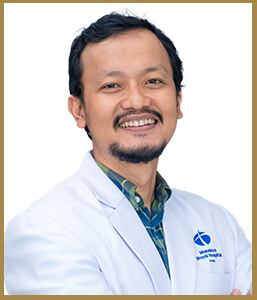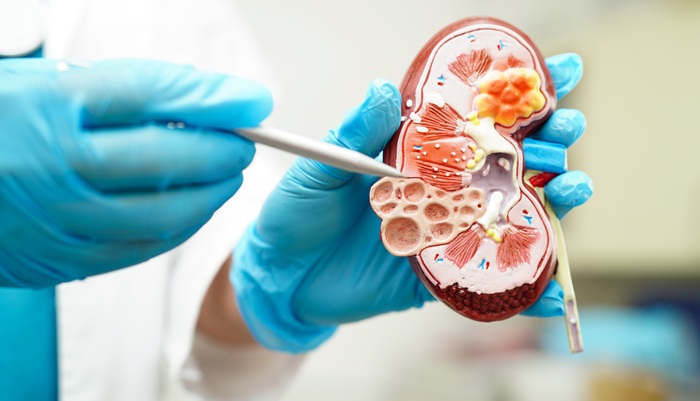A kidney transplant is a surgical procedure to replace a non-functioning kidney with a healthy kidney from a living or deceased donor. The kidneys are responsible for filtering waste and excess fluid from the blood. When this function drops significantly—usually in the final stage of chronic kidney disease—doctors will typically recommend a kidney transplant.
Unlike dialysis, which must be done regularly, a kidney transplant can offer patients a better quality of life and longer life expectancy.
Contents
When Is a Kidney Transplant Needed?
Kidney transplantation is usually recommended when a patient reaches end-stage kidney disease, where kidney function falls below 15%. Common causes of this condition include:
- Diabetes (diabetic nephropathy)
- Chronic hypertension
- Glomerulonephritis
- Polycystic kidney disease
- Recurrent kidney infections or inflammation
A transplant can be performed before dialysis begins (preemptive transplant) or after a patient has undergone dialysis for some time. Preemptive transplantation often results in better long-term outcomes.
Kidney Transplant Procedure
The kidney transplant process involves several stages:
- Evaluation and Preparation: The recipient will undergo a series of tests to ensure they are in good enough health for the procedure. This includes blood tests, imaging, and heart evaluations.
- Finding a Donor: Donors can be living (such as family members or friends) or deceased (from the national waiting list). Tissue matching is essential to reduce the risk of organ rejection.
- Transplant Surgery: During surgery, the donor kidney is placed in the lower abdomen and connected to the main blood vessels and bladder. The original kidneys are usually left in place unless they cause problems.
- Postoperative Care: Patients must take lifelong immunosuppressive therapy to prevent their bodies from rejecting the new organ. Regular checkups are needed to monitor the transplanted kidney’s function.
Risks of Kidney Transplantation
As with any major surgery, kidney transplantation comes with potential risks. Common risks include:
- Organ rejection: The body may recognize the new kidney as foreign and attack it.
- Infections: Immunosuppressant drugs increase vulnerability to infections.
- Side effects of medications: These can include high blood pressure, high blood sugar, elevated cholesterol, and increased risk of skin cancer or lymphoma.
- Vascular complications: Such as thrombosis or leakage from the blood vessel connections.
- Graft failure: The transplanted kidney may stop functioning within days, months, or years.
Despite these risks, kidney transplants have a high success rate. About 90% of kidneys from living donors still function one year after transplantation.
Kidney Transplant Specialist Team at Mandaya Royal Hospital Puri
Mandaya Royal Hospital Puri is a trusted healthcare facility that provides kidney transplant services. The hospital is supported by an experienced team of kidney transplant specialists, including:
1. dr. Hendy Mirza, Sp.U(K)

A urology specialist who graduated from the Faculty of Medicine, University of North Sumatra. He completed his urology specialization at the University of Indonesia and pursued a fellowship in pediatric urologic reconstruction (including laparoscopy) at the same institution. He is also certified as a Pediatric Urology Consultant.
dr. Hendy is experienced in various urological procedures such as urinary tract surgery, prostate biopsy, PCNL (Percutaneous Nephrolithotomy), and TURP (Transurethral Resection of the Prostate).
Practice Schedule at Mandaya Royal Hospital Puri:
- Monday: 16:00 – 19:00
- Wednesday: 16:00 – 19:00
- Friday: 16:00 – 19:00
2. dr. Maruto Harjanggi, BSc(Hons), Sp.U, FICS

A urology specialist from the University of Indonesia and holder of a BSc (Hons) degree from Newcastle University, UK.
Dr. Maruto is skilled in procedures such as kidney stone surgery, prostate enlargement management, and vasectomy.
Practice Schedule at Mandaya Royal Hospital Puri:
-
Monday to Saturday: 09:00 – 13:00
3. dr. Ima Nastiti Setyaningsih, Sp.U

A urology specialist who completed both her general medical and urology training at the University of Indonesia. Dr. Ima is skilled in various urological treatments such as cystectomy, kidney surgery, urinary tract surgery, and TURP.
Practice Schedule at Mandaya Royal Hospital Puri:
- Tuesday: 14:00 – 16:00
- Thursday: 14:00 – 16:00
4. Prof. dr. Chaidir Arif Mochtar, Sp.U(K), PhD
A highly experienced senior urologist, Prof. Chaidir is proficient in kidney surgery, prostate surgery, varicocele surgery, PCNL, urinary tract surgery, and kidney transplantation.
He is renowned for his extensive experience and high surgical volume in kidney transplant procedures.
5. Prof. dr. Ponco Birowo, Sp.U(K), PhD
Like Prof. Chaidir, Prof. Ponco is a urology specialist with advanced expertise in kidney transplant surgeries. He has substantial experience and a strong track record in this field.



